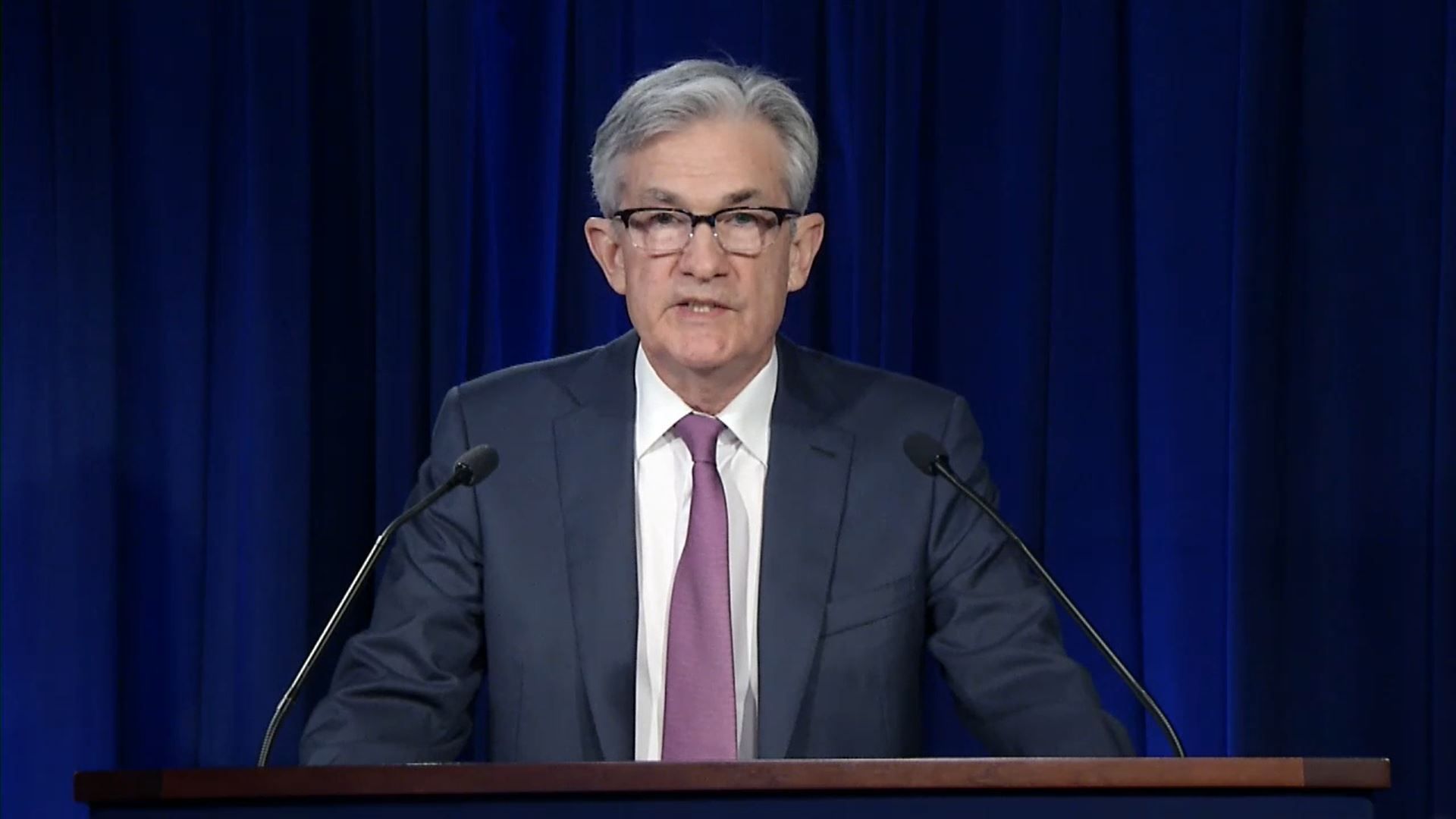May 29, 2020 - Economy
Fed Chair Powell: Coronavirus is "great increaser" of income inequality
Add Axios as your preferred source to
see more of our stories on Google.

Fed Chair Jerome Powell during a virtual press conference last month. Photo: Federal Reserve via Getty Images
